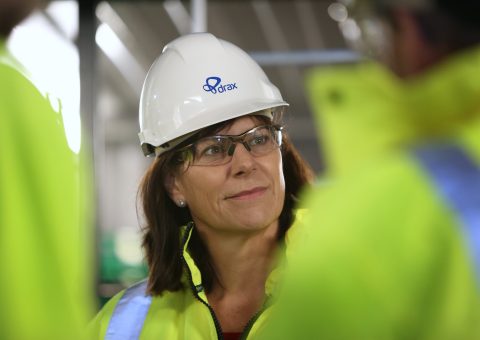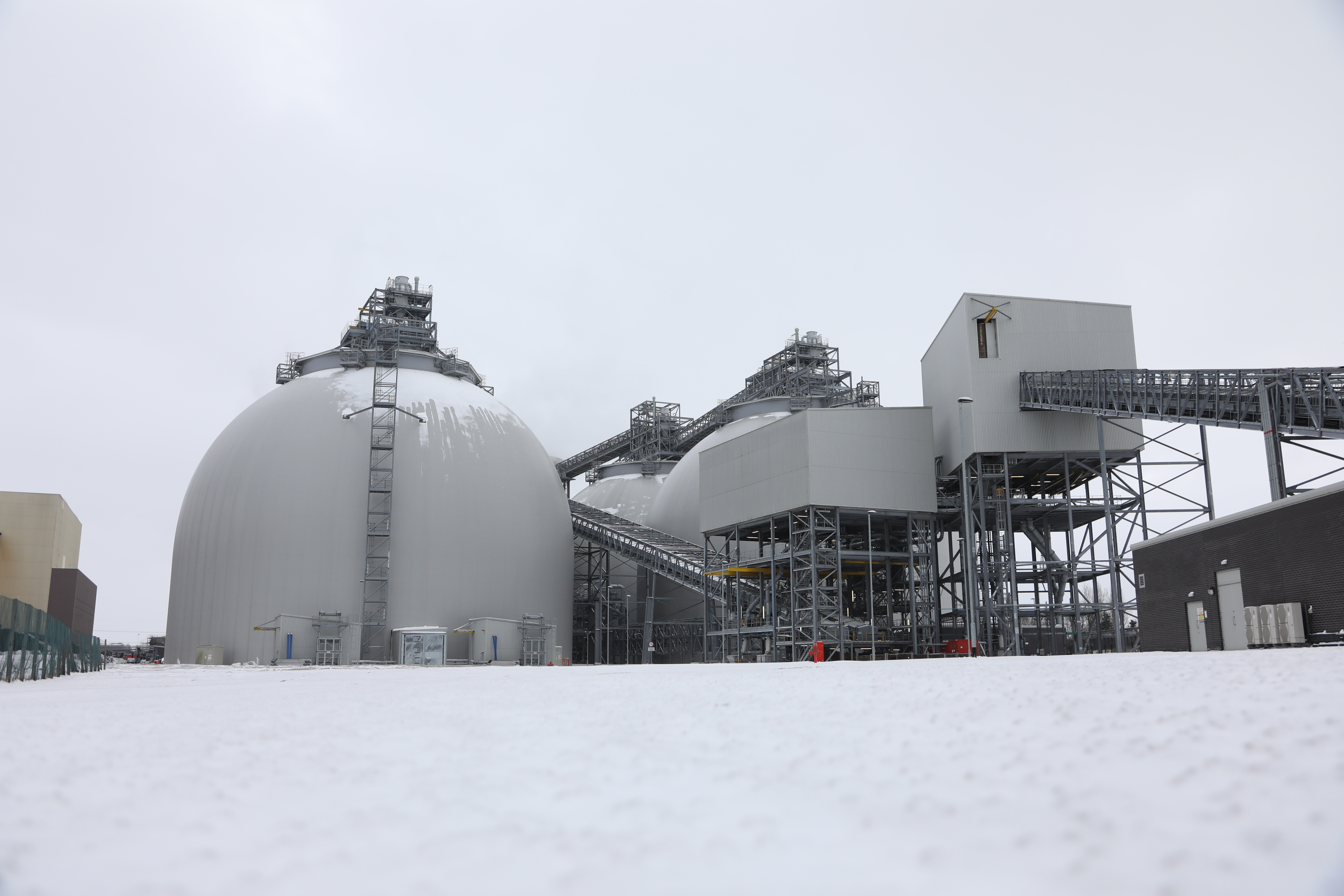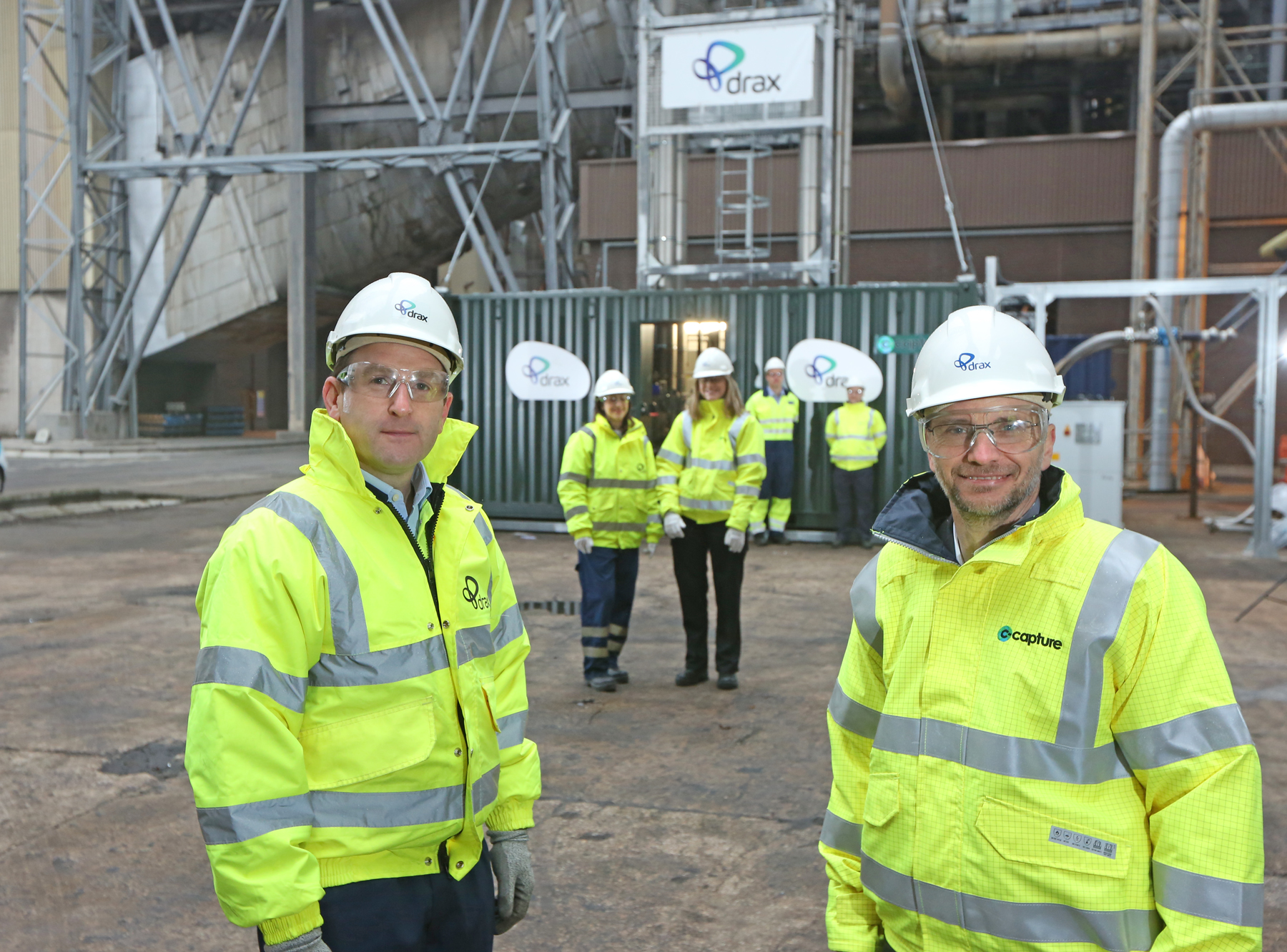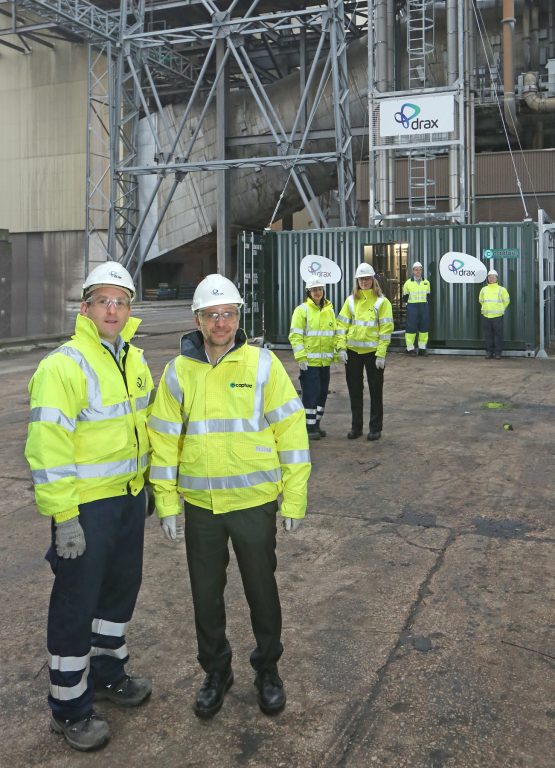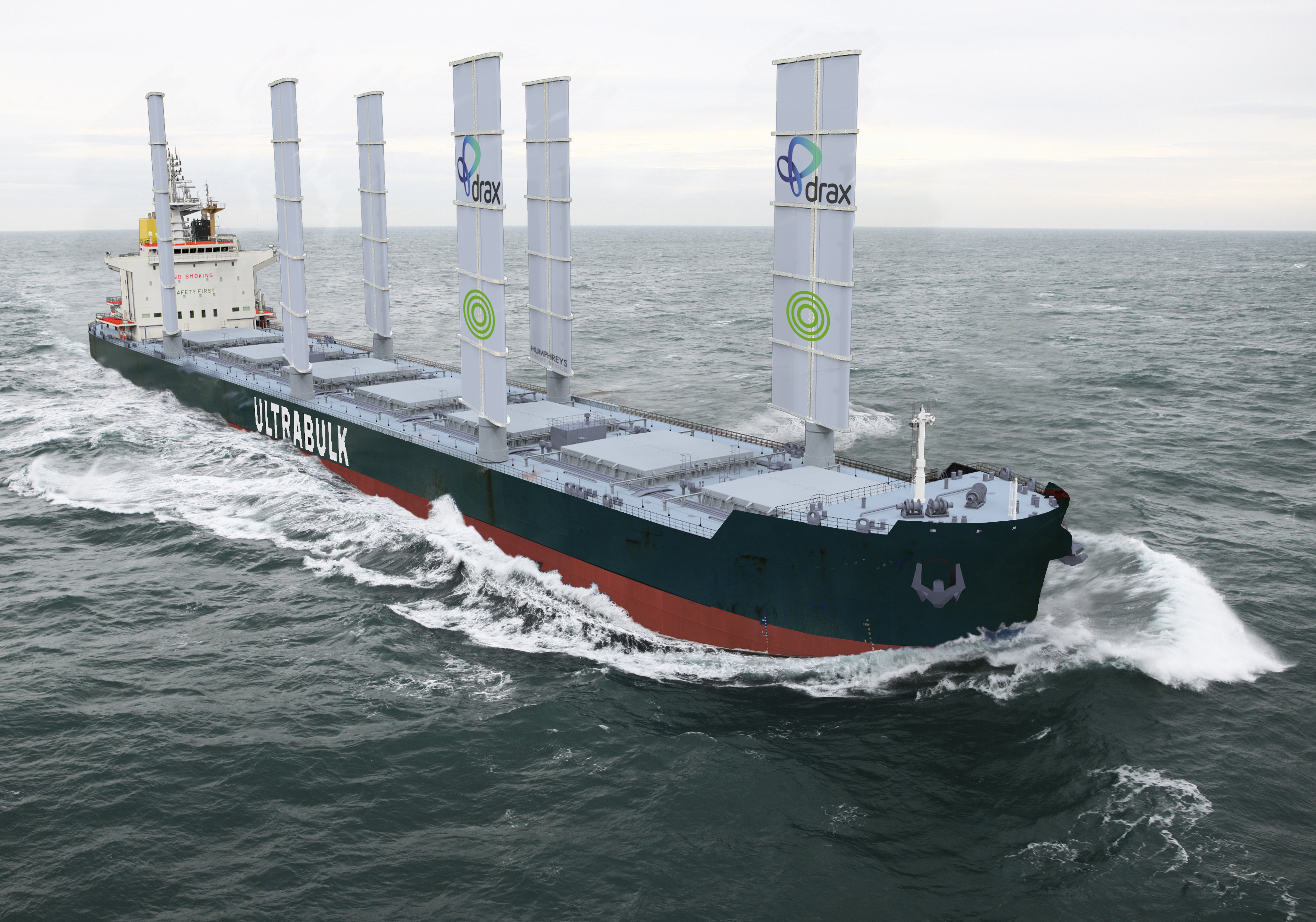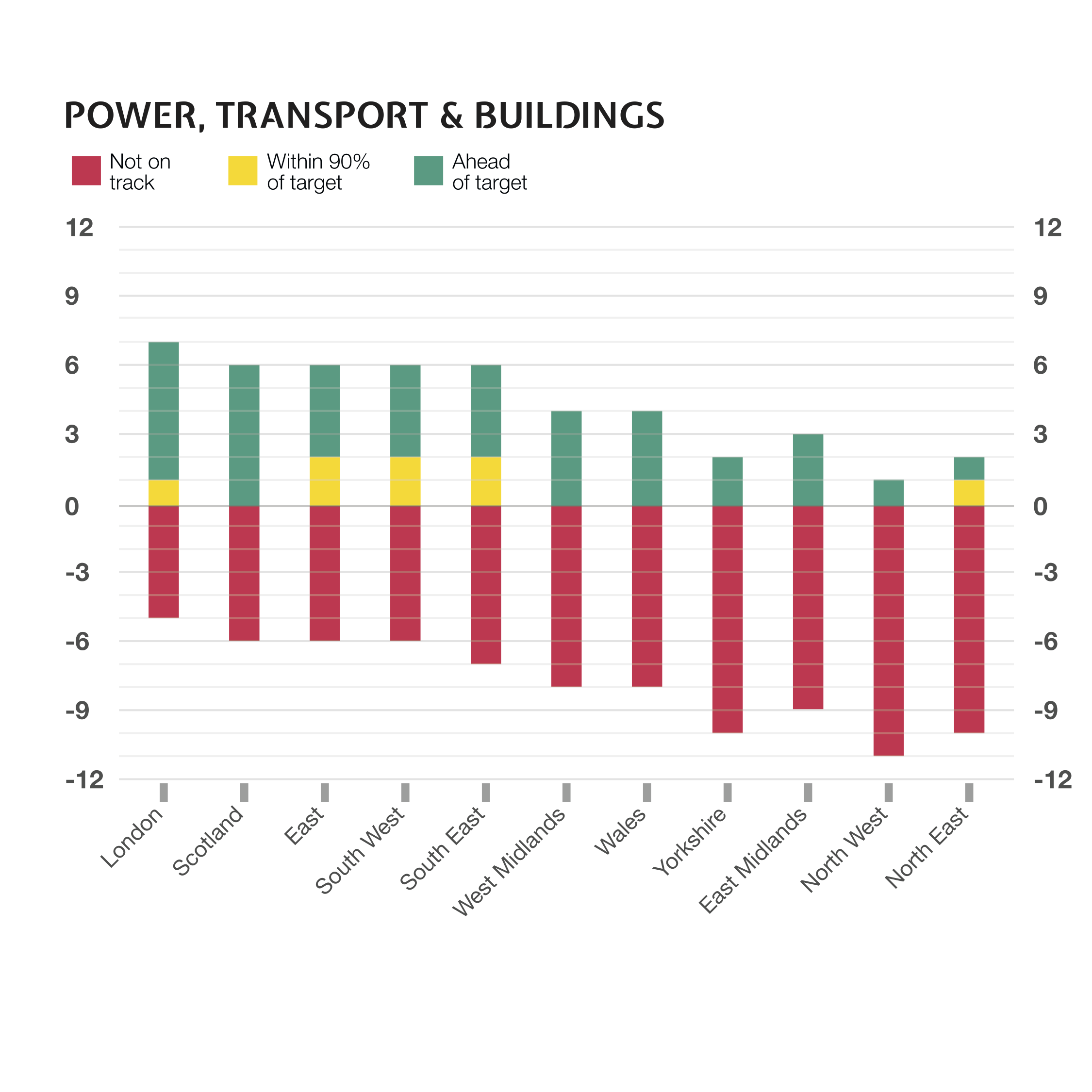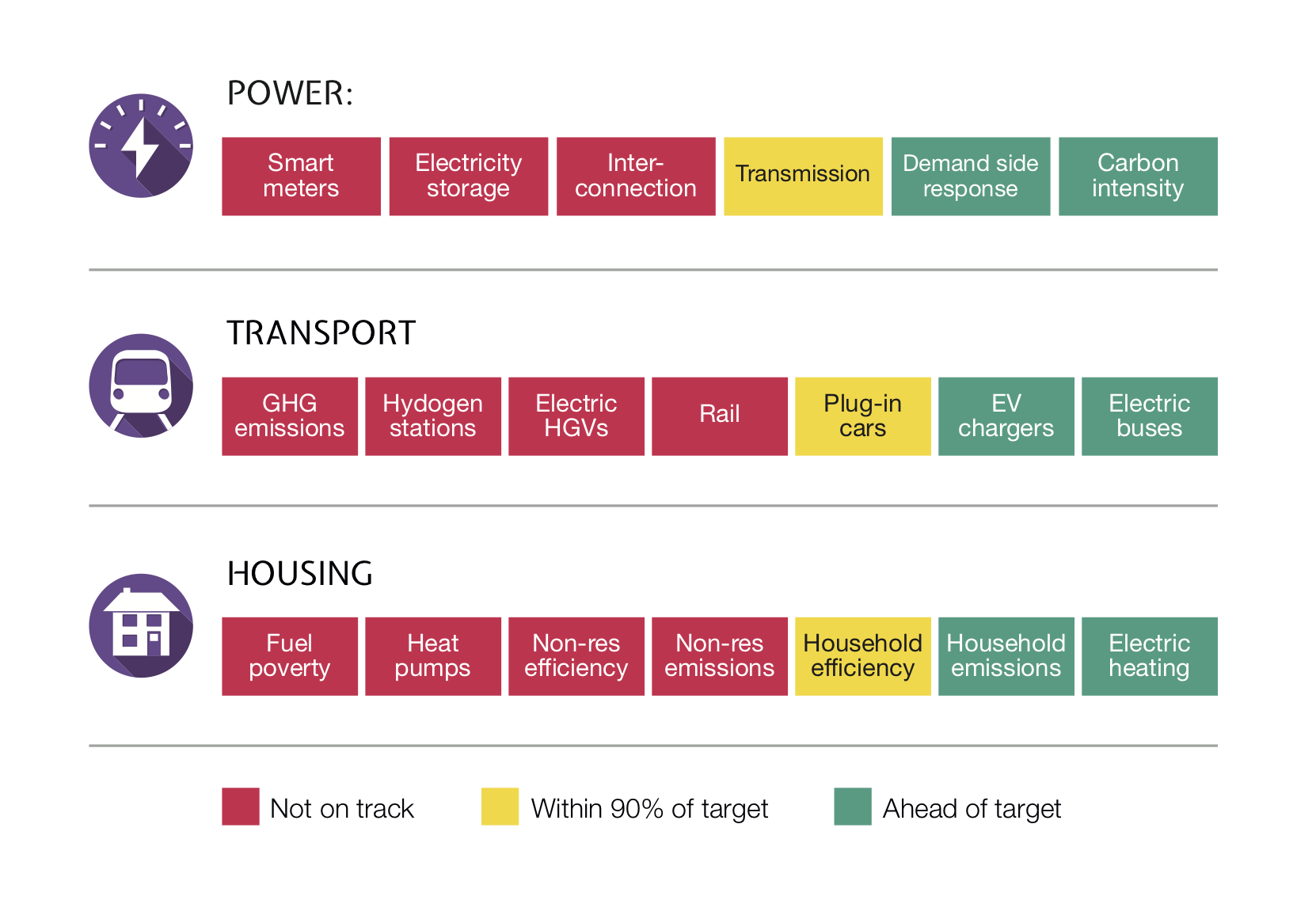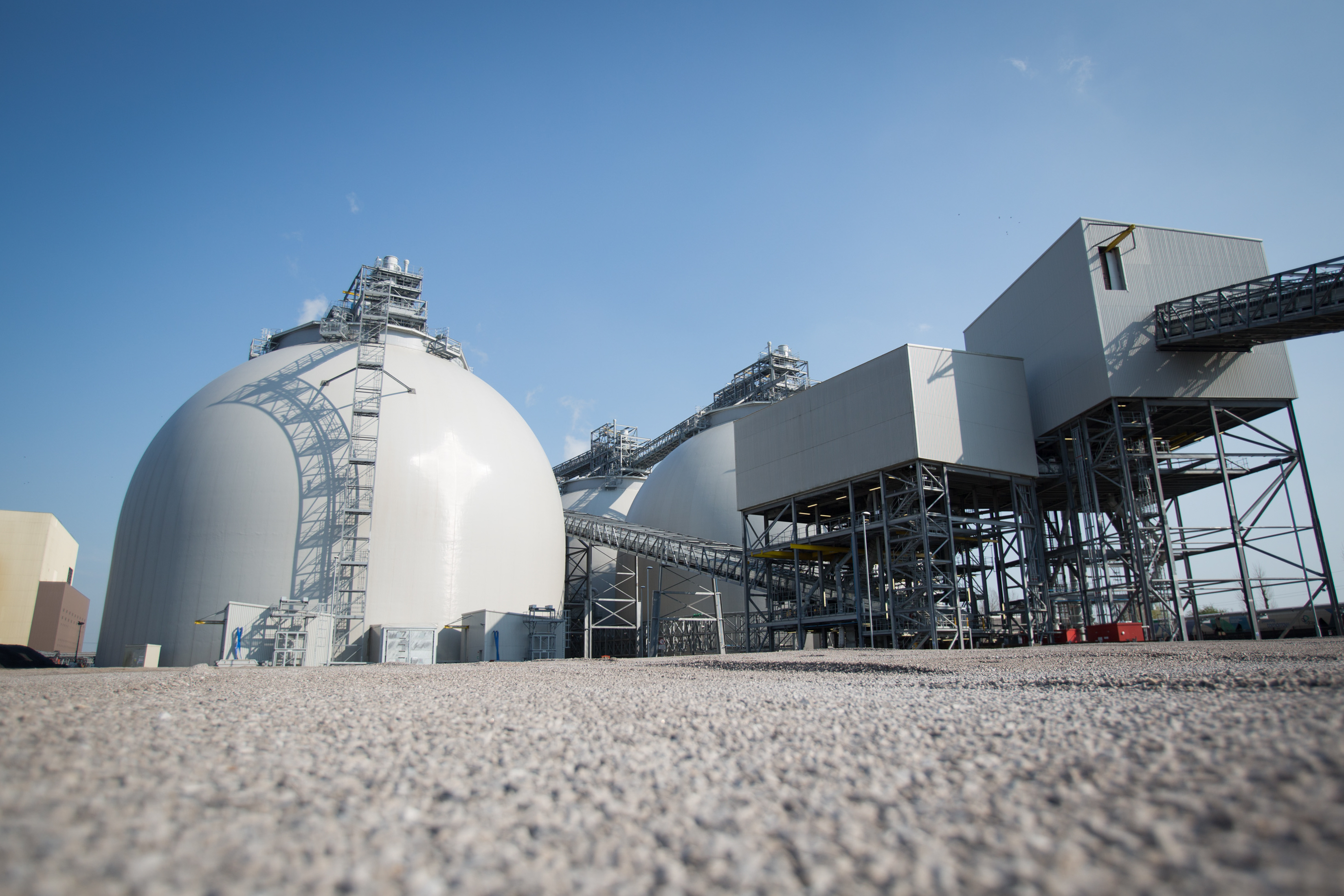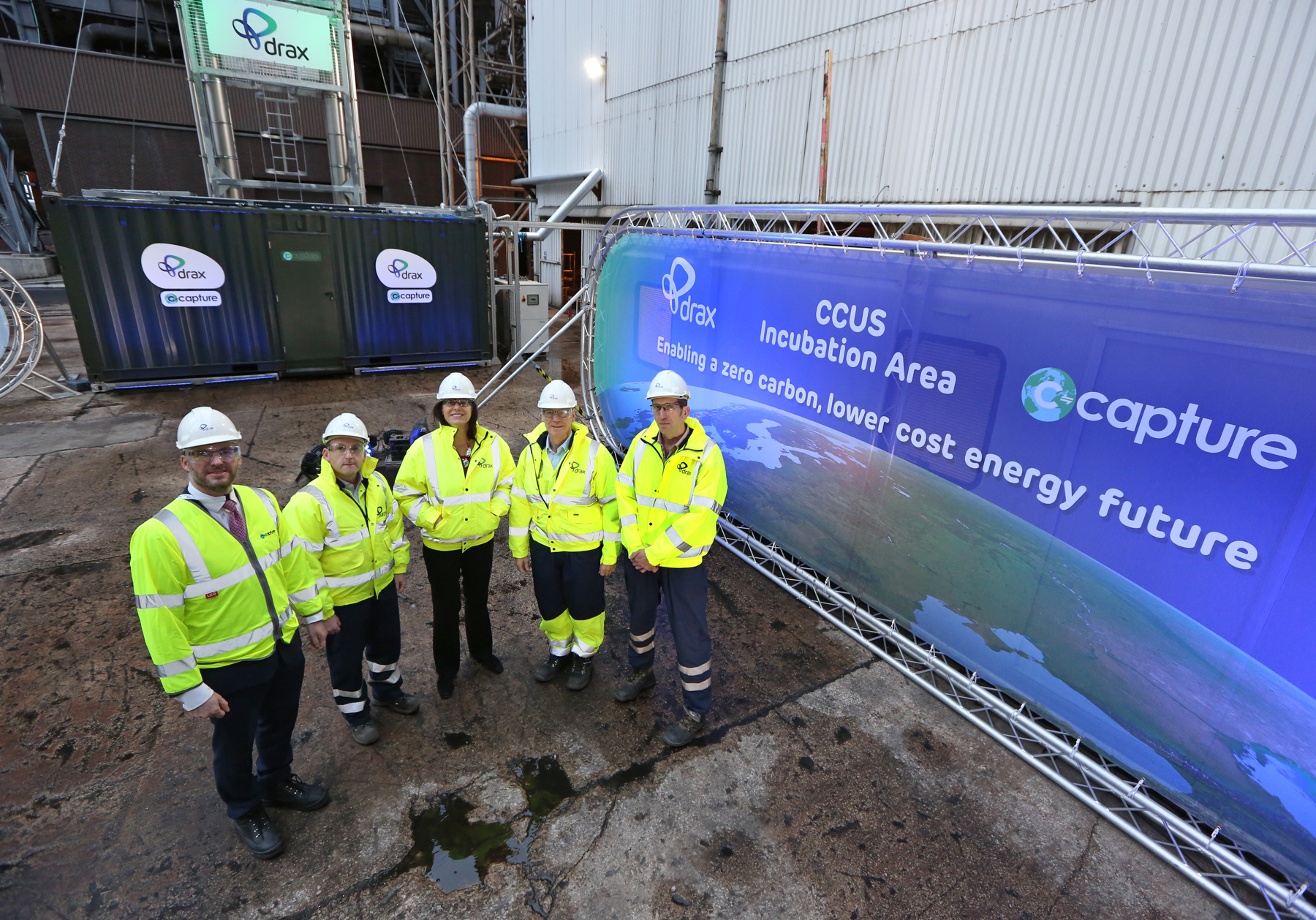
It is the first of its kind in Europe and could enable Drax to become the first carbon negative power station in the world.
BECCS has been identified as an essential technology for achieving global climate targets and the UK government announced new plans for developing CCS at the first ever world summit on CCS held in Edinburgh this week.
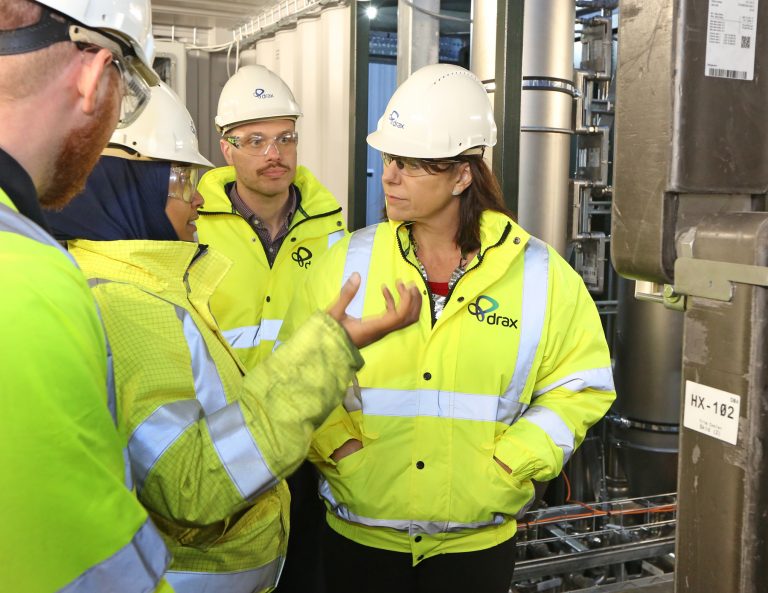
L-R: C-Capture project Engineers Duncan Holdsworth and Fatima Bilal, Drax Research and Innovation Engineer Carl Clayton and Energy and Clean Growth Minister Claire Perry
Drax has invested £400,000 in its BECCS pilot, which uses technology developed by Leeds University spin out company C-Capture, and is expected to capture a tonne of carbon dioxide a day during the six month project.
If successful and the technology is scaled up, it could enable Drax to achieve negative emissions – meaning the power it produces would reduce the amount of carbon dioxide accumulating in the atmosphere; vital in tackling climate change.
During her visit to Drax Power Station in North Yorkshire, the minister met the team behind the innovative project and heard about the commissioning of the plant, which got underway this week, and coincided with the 10th anniversary of the Climate Change Act.
Energy and Clean Growth Minister, Claire Perry, said:
“This major milestone in developing cutting-edge technology to reduce emissions while growing the economy shows our modern Industrial Strategy in action.
“Backed by government funded innovation, Drax has helped put the UK on the map when it comes to carbon capture ahead of pivotal talks with global leaders in Edinburgh this week, which aim to supercharge the global deployment of this game-changing technology.”
This project at Drax is already helping to put the UK on the map when it comes to carbon capture. The development of this cutting-edge technology to reduce emissions while growing the economy shows our modern Industrial Strategy in action. It is game-changing technology, which is why we need to supercharge its deployment.”
The government announced it was providing £20m to develop carbon capture equipment at industrial sites, as well as plans to repurpose fossil fuel infrastructure, such as reusing old gas pipelines to transport carbon, at the CCS summit in Edinburgh this week.

L-R: Drax Group CEO Will Gardiner, Drax Power CEO Andy Koss, Energy and Clean Growth Minister Claire Perry, C-Capture Chairman Tristan Fischer and Drax Head of Research and Innovation Jason Shipstone
The project at Drax includes the use of equipment no longer used to control sulphur on four of the generating units at the power station which have been upgraded to use sustainable biomass, instead of coal. This is because the wood pellets used to generate renewable power, produce minimal levels of sulphur.
Since upgrading two thirds of the power station to use biomass instead of coal, Drax has become the UK’s largest renewable power generator and the biggest decarbonisation project in Europe.
ENDS
Media contacts:
Ali Lewis
Drax Group Interim Head of Media & PR
E: [email protected]
T: 07712670888
Jessica Gorton
Drax Group Press Officer
E: [email protected]
T: 07712677177
Editor’s Notes
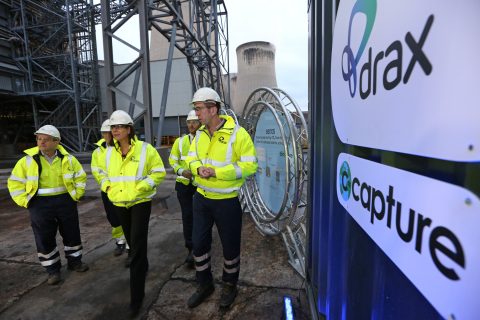
L-R: Drax Power CEO Andy Koss, Drax Group CEO Will Gardiner, Energy and Clean Growth Minister Claire Perry, C-Capture Chairman Tristan Fischer and Drax Head of Research and Innovation Jason Shipstone
- Drax Power Station is the single largest user of sustainable biomass for power in the world – around 70% of the electricity it produces is renewable, enough to power four million households.
- Biomass, such as sustainably sourced compressed wood pellets, is a renewable fuel – the CO2 captured when it grew is equal to the emissions it releases when used to generate electricity so it does not contribute new carbon to the biosphere. When coupled with CCS, the overall process of biomass electricity generation removes more CO2 from the atmosphere than it releases.
- The government’s Clean Growth Strategy identified ‘sustainable biomass power stations used in tandem with CCUS technology’ as a potential route to achieving long-term decarbonisation between now and 2050.
- Drax is in discussions with the British Beer and Pub Association to see if it could help keep the fizz in the drinks industry as part of its efforts to ensure the carbon captured during the BECCS pilot project is used in another process or industry.
- C-Capture is a spin out from the Chemistry Department at Leeds University and has attracted support from IP Group, the Department for Business Energy and Industrial Strategy’s Energy Entrepreneurs Fund and the CO2 Capture Project for CO2 capture technology, which has potential in a range of areas including biogas upgrading, natural gas sweetening and hydrogen production.
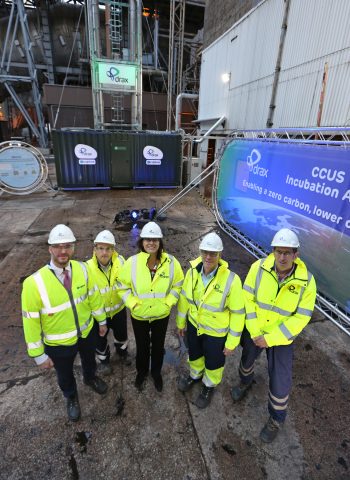
L-R: C-Capture Chairman Tristan Fischer, Drax Power CEO Andy Koss, Energy and Clean Growth Minister Claire Perry, Drax Group CEO Will Gardiner and Drax Head of Research and Innovation Jason Shipstone
About Drax
Drax Group plc plays a vital role in helping change the way energy is generated, supplied and used. Its 2,300-strong staff operate across three principal areas of activity – electricity generation, electricity sales to business customers and compressed wood pellet production.
The Group includes:
Drax Power Ltd, which operates the largest power station in the UK, based at Selby, North Yorkshire and supplies six percent of the country’s electricity needs. The energy firm converted from burning coal to become a predominantly biomass-fuelled electricity generator. Drax is the biggest renewable generator in the UK and the largest decarbonisation project in Europe.
Haven Power, based in Ipswich, supplies electricity to large Industrial and Commercial sector businesses.
Opus Energy, based in Oxford, Northampton and Cardiff, provides electricity and gas to small and medium sized (SME) businesses.
Drax Biomass, is based in the US and manufactures compressed wood pellets produced from sustainably managed working forests, supplying fuel used by Drax Power Station in North Yorkshire to generate flexible, renewable power for the UK’s homes and businesses.
For more information visit www.drax.com








